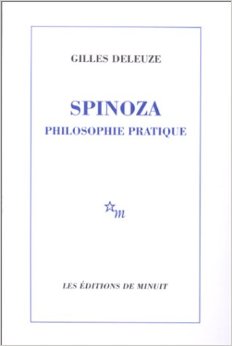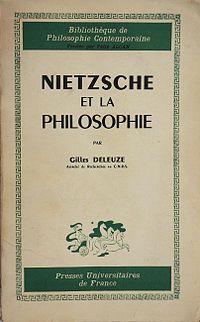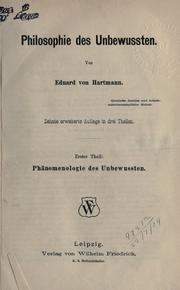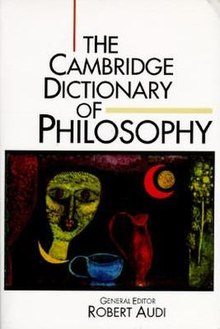
Thomas Hobbes was an English philosopher. Hobbes is best known for his 1651 book Leviathan, in which he expounds an influential formulation of social contract theory. In addition to political philosophy, Hobbes contributed to a diverse array of other fields, including history, jurisprudence, geometry, theology, and ethics, as well as philosophy in general. He is considered to be one of the founders of modern political philosophy.

A Dictionary of Modern English Usage (1926), by Henry Watson Fowler (1858–1933), is a style guide to British English usage, pronunciation, and writing. Covering topics such as plurals and literary technique, distinctions among like words, and the use of foreign terms, the dictionary became the standard for other style guides to writing in English. Hence, the 1926 first edition remains in print, along with the 1965 second edition, edited by Ernest Gowers, which was reprinted in 1983 and 1987. The 1996 third edition was re-titled as The New Fowler's Modern English Usage, and revised in 2004, was mostly rewritten by Robert W. Burchfield, as a usage dictionary that incorporated corpus linguistics data; and the 2015 fourth edition, revised and re-titled Fowler's Dictionary of Modern English Usage, was edited by Jeremy Butterfield, as a usage dictionary. Informally, readers refer to the style guide and dictionary as Fowler's Modern English Usage, Fowler, and Fowler's.
The philosophy of social science is the study of the logic, methods, and foundations of social sciences. Philosophers of social science are concerned with the differences and similarities between the social and the natural sciences, causal relationships between social phenomena, the possible existence of social laws, and the ontological significance of structure and agency.
Friedrich Waismann was an Austrian mathematician, physicist, and philosopher. He is best known for being a member of the Vienna Circle and one of the key theorists in logical positivism.
Robert N. Audi is an American philosopher whose major work has focused on epistemology, ethics, rationality and the theory of action. He is O'Brien Professor of Philosophy at the University of Notre Dame, and previously held a Chair in the Business School there. His 2005 book, The Good in the Right, updates and strengthens Rossian intuitionism and develops the epistemology of ethics. He has also written important works of political philosophy, particularly on the relationship between church and state. He is a past president of the American Philosophical Association and the Society of Christian Philosophers.

Inner Experience is a 1943 book by the French intellectual Georges Bataille. His first lengthy philosophical treatise, it was followed by Guilty (1944) and On Nietzsche (1945). Together, the three works constitute Bataille's Summa Atheologica, in which he explores the experience of excess, expressed in forms such as laughter, tears, eroticism, death, sacrifice and poetry.

Spinoza: Practical Philosophy is a book by the philosopher Gilles Deleuze, in which the author examines Baruch Spinoza's philosophy, discussing Ethics (1677) and other works such as the Tractatus Theologico-Politicus (1670), providing a lengthy chapter defining Spinoza's main concepts in dictionary form. Deleuze relates Spinoza's ethical philosophy to the writings of Friedrich Nietzsche and Willem van Blijenbergh, a grain broker who corresponded with Spinoza in the first half of 1665 and questioned the ethics of his concept of evil. The work has received praise from commentators.
Karl P. Ameriks is an American philosopher. He is the Emeritus McMahon-Hank Professor of Philosophy at the University of Notre Dame.

Nietzsche and Philosophy is a 1962 book about Friedrich Nietzsche by the philosopher Gilles Deleuze, in which the author treats Nietzsche as a systematically coherent philosopher, discussing concepts such as the will to power and the eternal return. Nietzsche and Philosophy is a celebrated and influential work. Its publication has been seen as a significant turning-point in French philosophy, which had previously given little consideration to Nietzsche as a serious philosopher.
In philosophy, a state of affairs, also known as a situation, is a way the actual world must be in order to make some given proposition about the actual world's truth; in other words, a state of affairs is a truth-maker, whereas a proposition is a truth-bearer. Whereas states of affairs either obtain or fail-to-obtain, propositions are either true or false. Some philosophers understand the term "states of affairs" in a more restricted sense as a synonym for "fact". In this sense, there are no states of affairs that do not obtain.

Philosophy of the Unconscious: Speculative Results According to the Induction Method of the Physical Sciences is an 1869 book by the philosopher Eduard von Hartmann. The culmination of the speculations and findings of German romantic philosophy in the first two-thirds of the 19th century, Philosophy of the Unconscious became famous. By 1882, it had appeared in nine editions. A three volume English translation appeared in 1884. The English translation is more than 1100 pages long. The work influenced Sigmund Freud's and Carl Jung's theories of the unconscious.

Phaedon, published in 1767, is a book by the Jewish Enlightenment philosopher Moses Mendelssohn, in which Mendelssohn offers a defense of immortality.

Frege: Philosophy of Language is a book about the philosopher Gottlob Frege by the British philosopher Michael Dummett.

Frege: Philosophy of Mathematics is a 1991 book about the philosopher Gottlob Frege by the British philosopher Michael Dummett.

Philosophy of Natural Science is a 1966 book about the philosophy of science by the philosopher Carl Gustav Hempel.

Ethics is a work of ethical theory by the Japanese philosopher Tetsuro Watsuji. Steve Odin described Ethics as the premier work of modern Japanese ethical theory.

The Theory of Good and Evil is a 1907 book about ethics by the English philosopher Hastings Rashdall. The book, which has been compared to the philosopher G. E. Moore's Principia Ethica (1903), is Rashdall's best known work, and is considered his most important philosophical work. Some commentators have suggested that, compared to Principia Ethica, it has been unfairly neglected.

Lessons on the Analytic of the Sublime is a 1991 book about the philosopher Immanuel Kant's Critique of Judgment (1790), focusing on Kant's description of the sublime, by the French philosopher Jean-François Lyotard. The book received positive reviews following the appearance of its English translation in 1994.

Expressionism in Philosophy: Spinoza is a 1968 book by the philosopher Gilles Deleuze, in which the author conceives Baruch Spinoza as a solitary thinker who envisioned philosophy as an enterprise of liberation and radical demystification. Deleuze sees how the univocity of Being fits into the theory of substance and looks into the relationship between the theory of ideas and the production of truth and sense, the organisation of affect to achieve joy, and the organization of affect in the theory of modes.
Berys Gaut is an author and Professor of Philosophy at the University of St Andrews. He writes on aesthetics, creativity, philosophy of film, and ethics. He was president of the British Society of Aesthetics until 2018.














